What’s considered “normal” hotel service can be surprisingly different in the United States. After spending over 100 nights in U.S. hotels last year, I’ve put together six essential tips every traveler should know to avoid unexpected surprises during business trips or vacations.
From tipping and deposits to amenities, laundry, and breakfast, I’ll explain the real deal based on firsthand experience — so you can travel with confidence and peace of mind.
Is Tipping Required at U.S. Hotels?
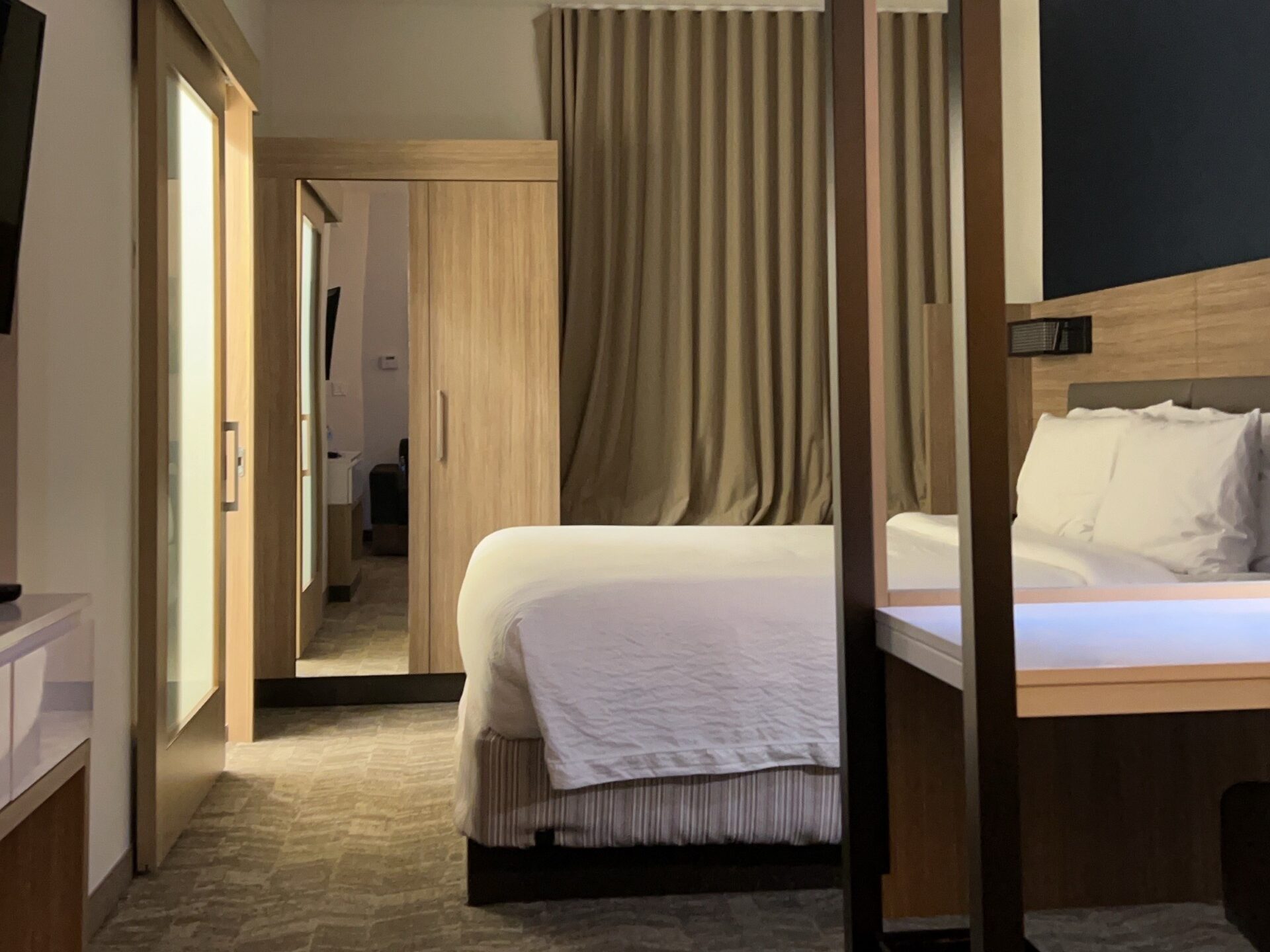
In the U.S., tipping at hotels is often said to be “expected,” but in my experience, I haven’t found it necessary in most cases.
The only times I’ve actually tipped were:
- For housekeeping during long-term stays
- When using valet parking services
Many hotels in the U.S. don’t offer daily housekeeping for short stays, so you might not even have a chance to tip. Budget and mid-range hotels also typically don’t have bellhops or room service, which means there are fewer situations where tipping is required.
That said, tipping is a deeply rooted part of American culture. While I’ve never received poor service for not tipping, it’s always a nice gesture to offer a small tip when someone goes above and beyond—it shows appreciation and helps you navigate local customs with ease.
What Is a Hotel Deposit in the U.S.?
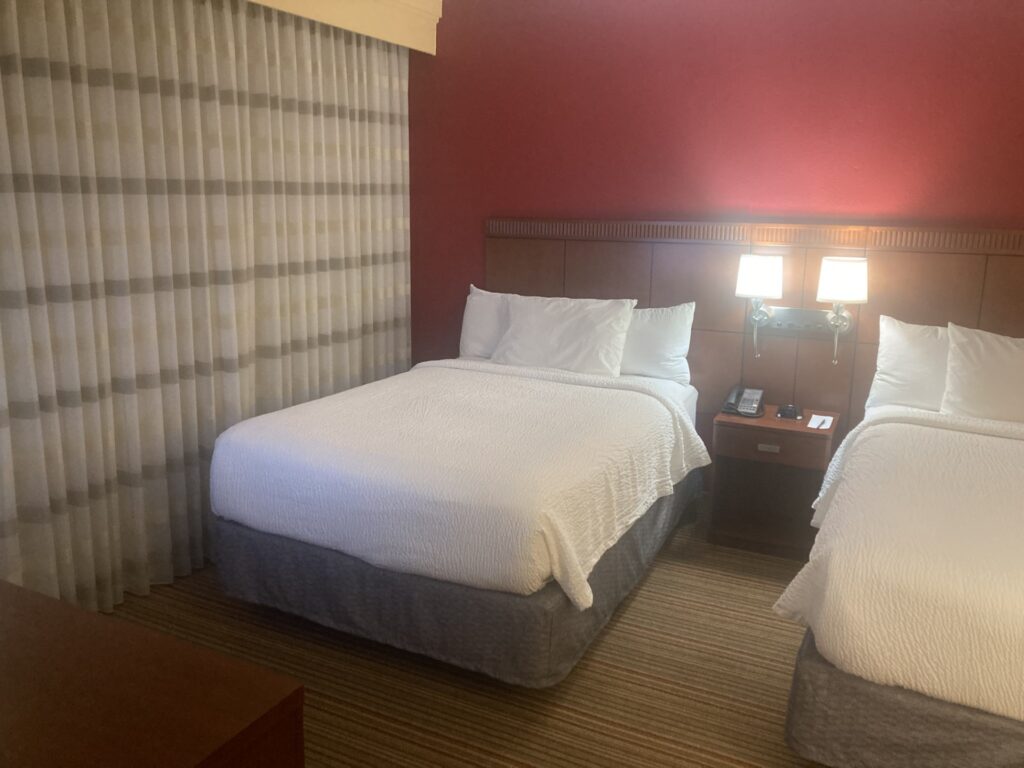
When checking into a hotel in the U.S., you’ll often be asked to provide a deposit—also known as a security hold—even if you’ve already paid for your stay online. This temporary hold on your credit card helps protect the hotel against potential issues during your stay.
▶ Why Is a Deposit Required?
Common reasons for a deposit include:
- Damage to the room or furniture
- Missing towels or amenities
- Smoking in a non-smoking room
To cover such “just in case” scenarios, hotels will place a hold (pending charge) on your credit card. This is not an extra payment, but a temporary authorization that typically disappears a few days after checkout, assuming no issues arise.
▶ You Still Need to Show Your Card, Even If You Prepaid
Even if you fully prepaid for your stay, you’ll still be asked to present a valid credit card at check-in. But rest assured—no additional charges will be made unless there’s a problem.
In the U.S., it’s common for hotels to require a credit card for a security deposit in addition to the room rate. While you won’t actually be charged (the amount is just held temporarily), you may not be able to check in without a valid credit card—so be sure to have one ready.
What Amenities Are Actually Provided in U.S. Hotels?
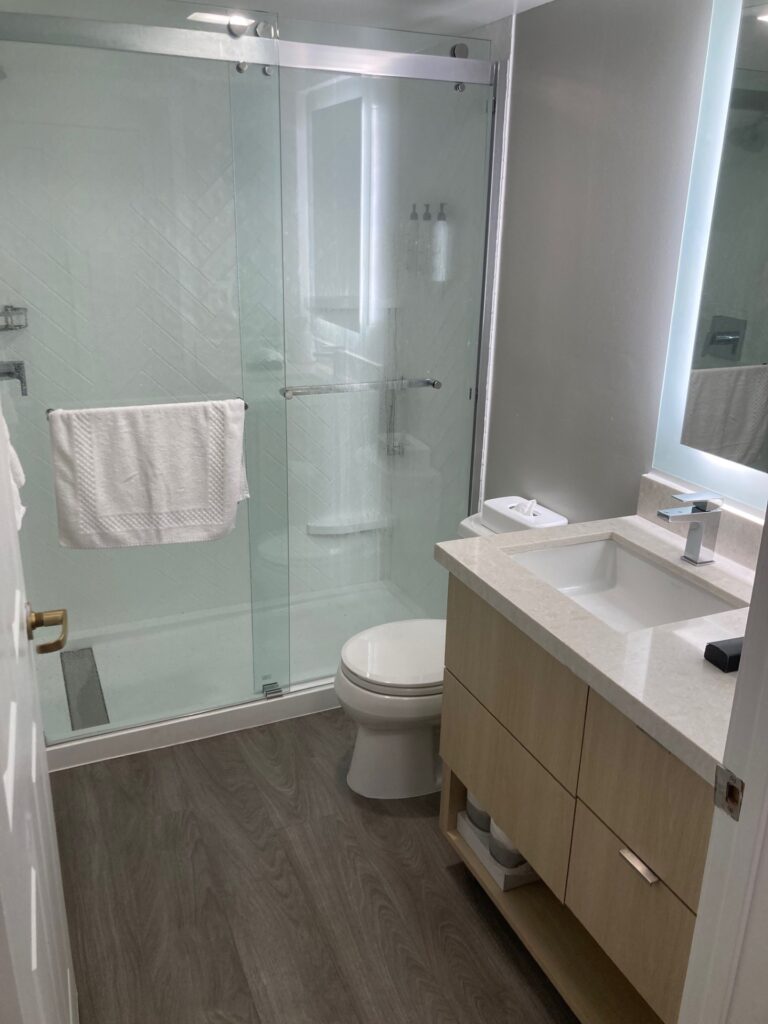
One common surprise for travelers is the lack of amenities in American hotels that are considered standard back home.
▶ Why Aren’t Amenities Provided?
In the U.S., the expectation is that guests will bring their own essentials. Especially in business hotels or motels, only the most basic items may be available.
▶ Items Often Not Provided
Be sure to pack the following items yourself:
- Slippers
- Toothbrush and toothpaste
- Pajamas
- Bottled water
Even in Luxury Hotels, Don’t Count on It
While some high-end hotels may occasionally provide amenities like toothbrushes or slippers, it’s best to assume they won’t. To avoid any inconvenience during your business trip or vacation, make sure to pack your own essentials before you travel.
Laundry in U.S. Hotels
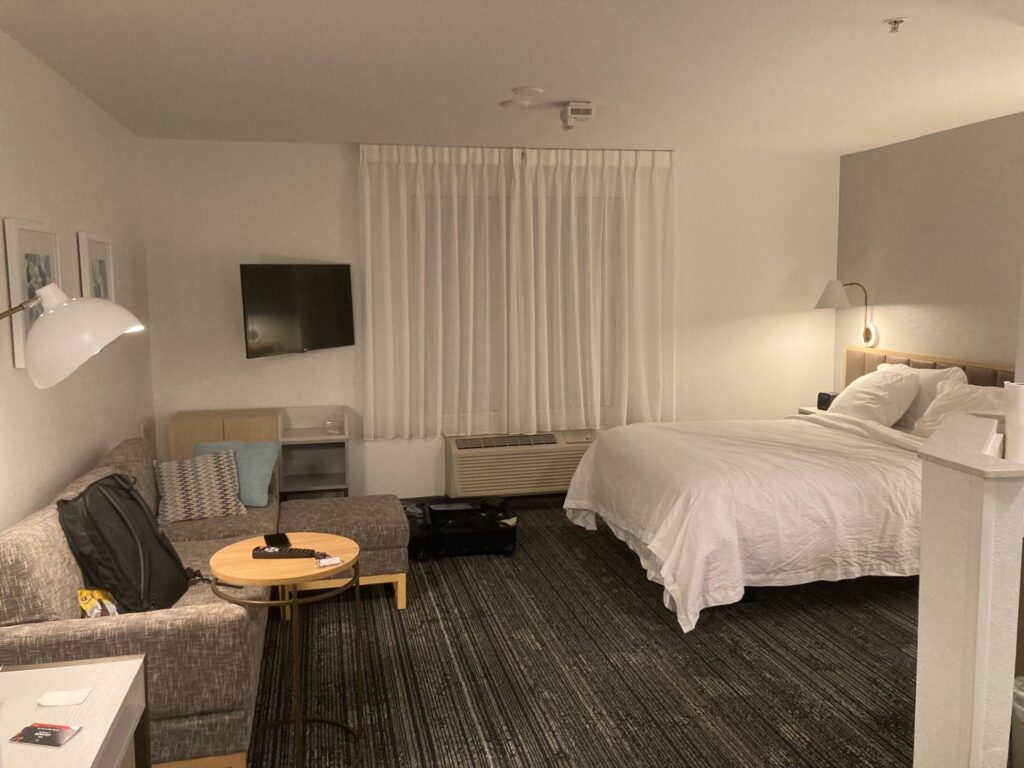
Many extended-stay and mid-range hotels in the U.S. offer on-site laundry facilities, but there are a few important things to keep in mind:
▶ Most Machines Are Coin-Operated
Washing and drying machines typically cost a few dollars each (e.g., $2.00 for wash, $1.50 for dry). While some machines accept credit cards, many still require coins, so it’s a good idea to keep quarters on hand. You can often ask the hotel front desk for change.
▶ Bring Your Own Detergent
Hotels rarely provide detergent. Travelers are expected to bring their own or purchase it at a nearby store. You can easily find single-use laundry detergent packs at drugstores or supermarkets across the U.S.
Need help choosing detergent or using American machines?
What to Expect from Hotel Breakfasts in the U.S.
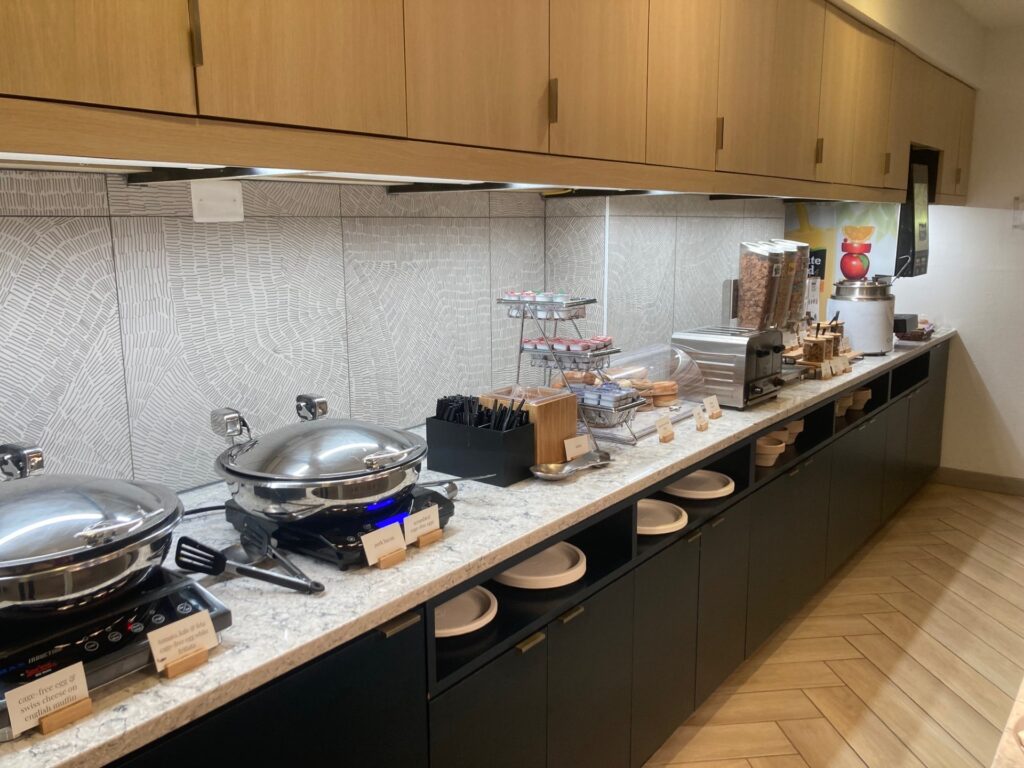
In the United States, some hotels offer complimentary breakfast, while others charge extra or don’t offer it at all. Budget and mid-range business hotels are more likely to include free breakfast—but don’t expect a full meal.
▶ Typical U.S. Hotel Breakfast Menu
Breakfasts at American hotels are usually light and continental. Common items include:
- Bagels, toast, and muffins
- Cereal and oatmeal
- DIY waffle stations
- Yogurt
- Fresh fruit (like bananas or apples)
- Coffee and fruit juice
If you’re on a business trip and don’t have time to search for breakfast in the morning, choosing a hotel with a complimentary breakfast can make your stay much more convenient.
Hotel Shuttle & Parking

▶ Do U.S. Hotels Offer Airport Shuttles?
In many parts of the U.S., public transportation isn’t as reliable or widespread as in countries like Japan. If you’re not renting a car, choosing a hotel with an airport shuttle can make your travel much easier.
Here’s what to expect, especially at hotels near airports:
- Many hotels offer free airport shuttle service
- Some shuttles don’t require reservations, while others must be requested by phone
- Shuttles often run on limited schedules, so wait times can vary depending on your arrival time
Before booking, it’s a good idea to check the hotel’s official website for shuttle availability and instructions.
▶ What About Parking Fees?
If you’re renting a car, parking is an important consideration. At many U.S. hotels—especially in urban or tourist-heavy areas—parking is not free. Expect to pay $20–$40 per night in many locations.
Things to keep in mind:
- Inform the front desk at check-in that you have a car
- You’ll likely receive a parking pass to display on your dashboard
- Parking fees are charged separately from the room rate
When comparing hotels, don’t forget to factor in parking costs along with the nightly rate to get a clear picture of your total expenses.
How Satisfied Are Guests with Hotels in the U.S.? An Honest Opinion
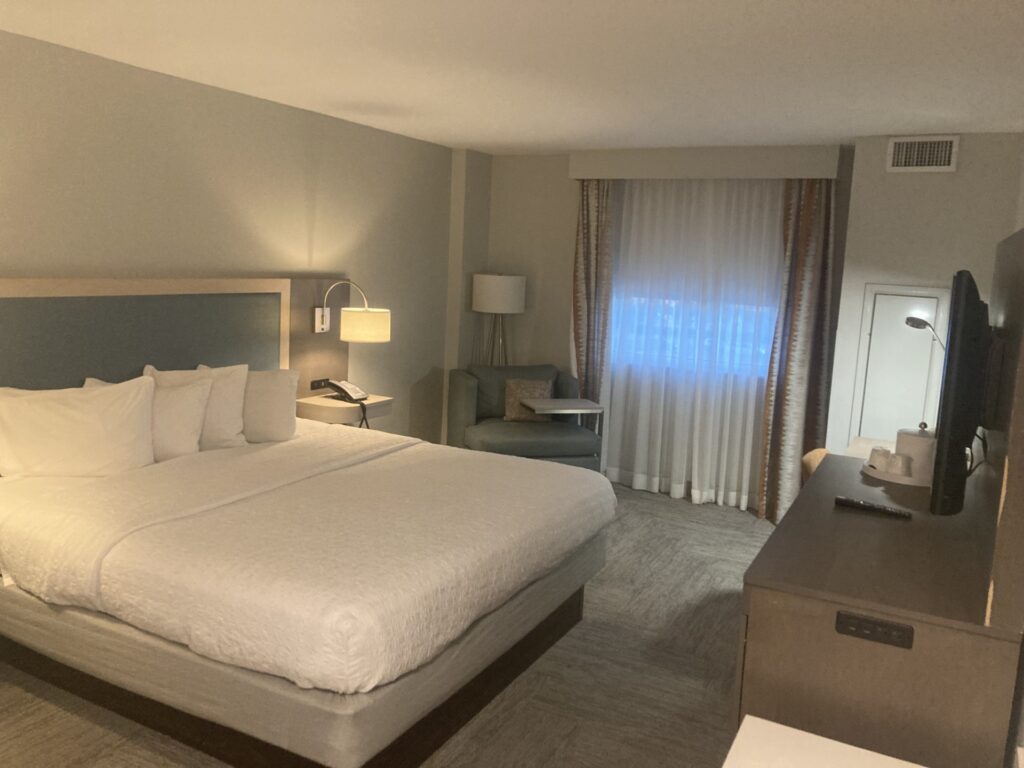
Honestly, when it comes to hotel interiors and cleanliness, there is often a noticeable gap between hotels in the U.S. and Japan.
- Bathrooms and sinks sometimes feel outdated
- Carpets may have a noticeable smell
- Some rooms seem not thoroughly cleaned
These are my honest impressions after staying at various hotels during business trips and travels.
Another challenge is that hotel prices can be quite high relative to the quality. Business hotels often cost around $150 per night, and luxury hotels can range from $500 to $800 per night or more.
Hotel lounges also differ from Japan; while many Japanese hotel lounges offer complimentary drinks, in the U.S., alcoholic beverages are often not free, limiting the perks guests can enjoy even if they have lounge access.
If you’re hoping to relax in a luxury hotel, keep in mind that the price doesn’t always guarantee a high level of satisfaction in the U.S. Instead, it’s often smarter to save money on accommodation and spend more on sightseeing, dining, and local experiences.
Unfortunately, hotel satisfaction in the U.S. often falls short of expectations. If you want to truly enjoy your hotel stay, booking a luxury hotel in Japan is highly recommended.
Summary
Using hotels in the U.S. comes with many differences compared to other countries, so it’s important to check and prepare in advance. Understanding tipping customs, what amenities are provided, and the typical breakfast options can greatly reduce stress during your stay.
I hope this article helps those traveling to the U.S. for business or leisure to have a more comfortable and enjoyable hotel experience.
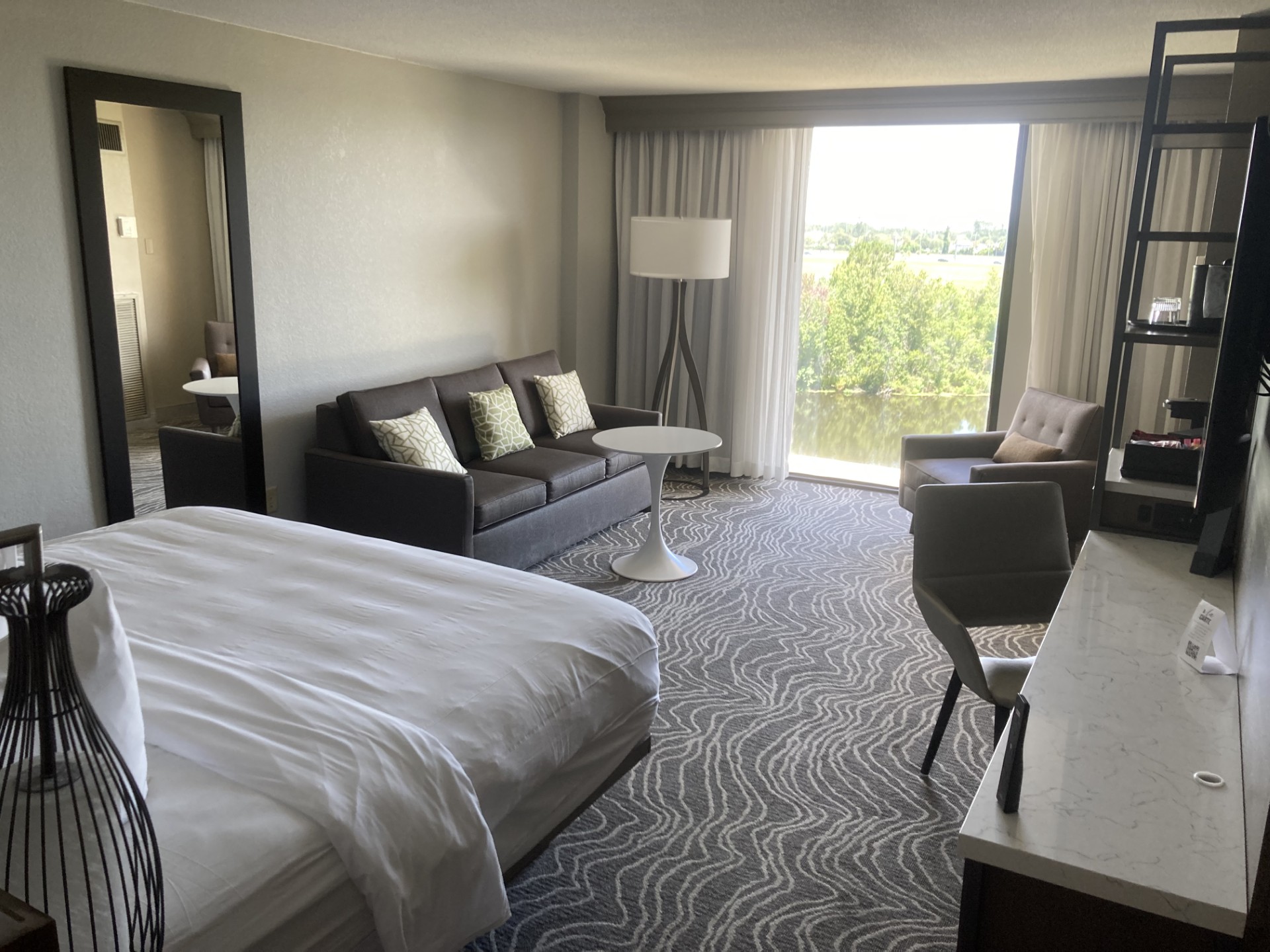
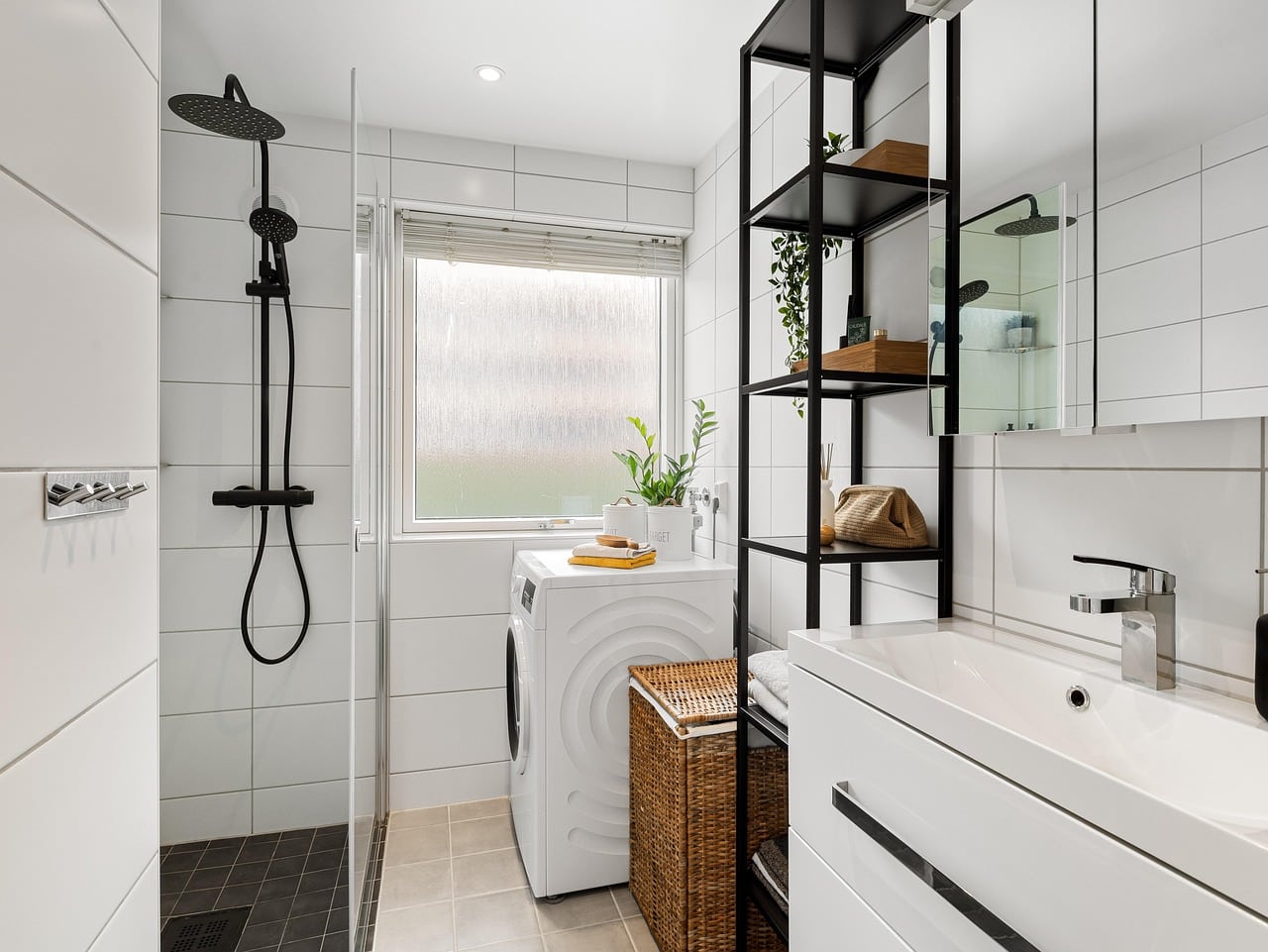


コメント